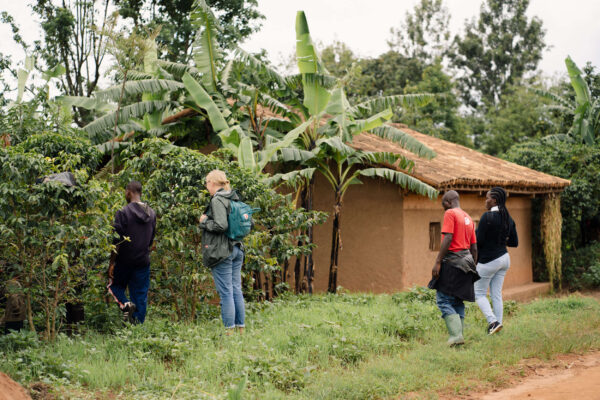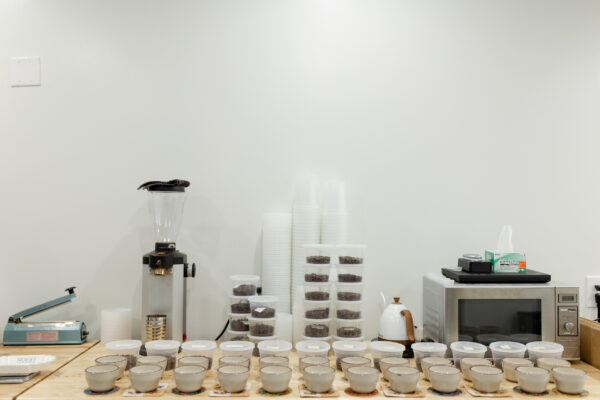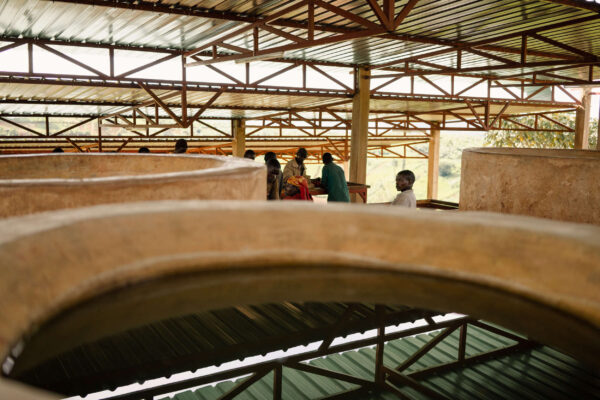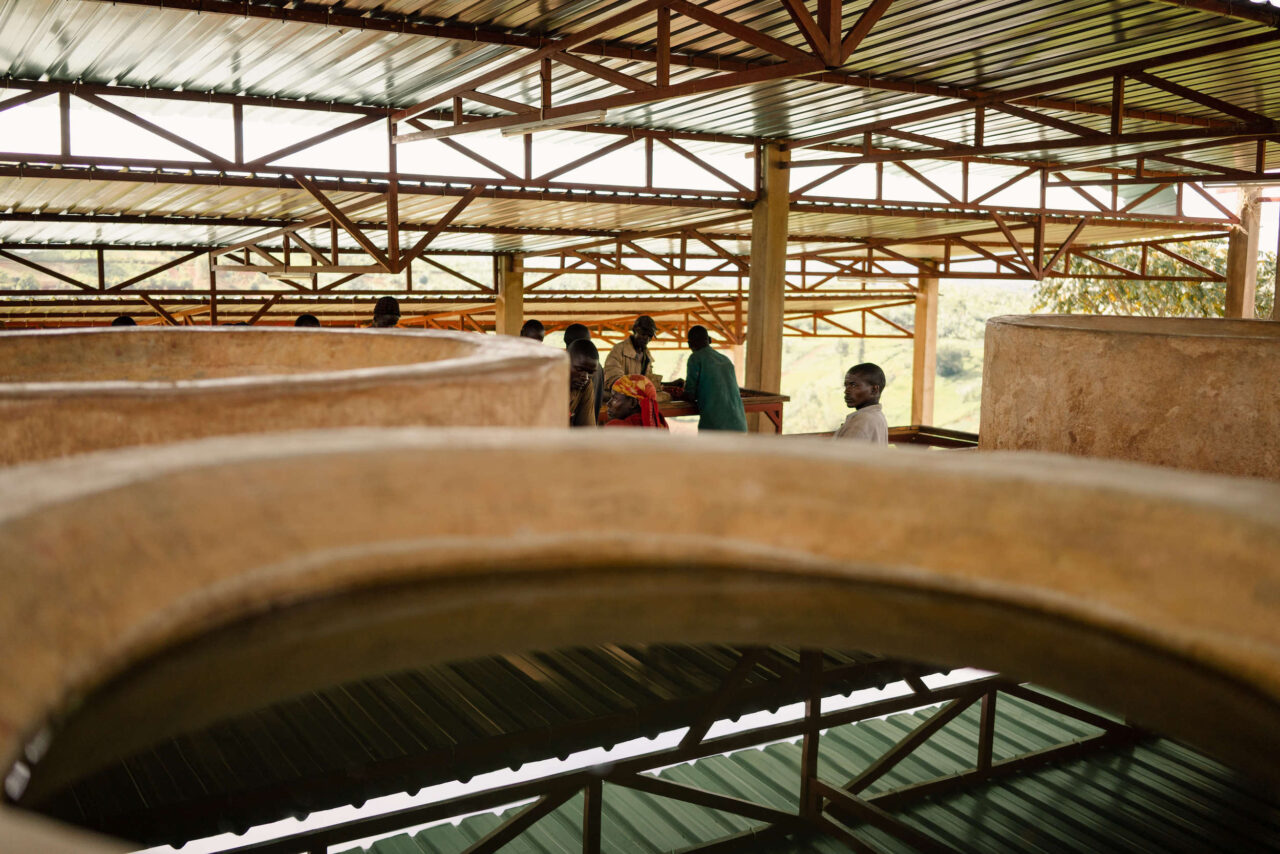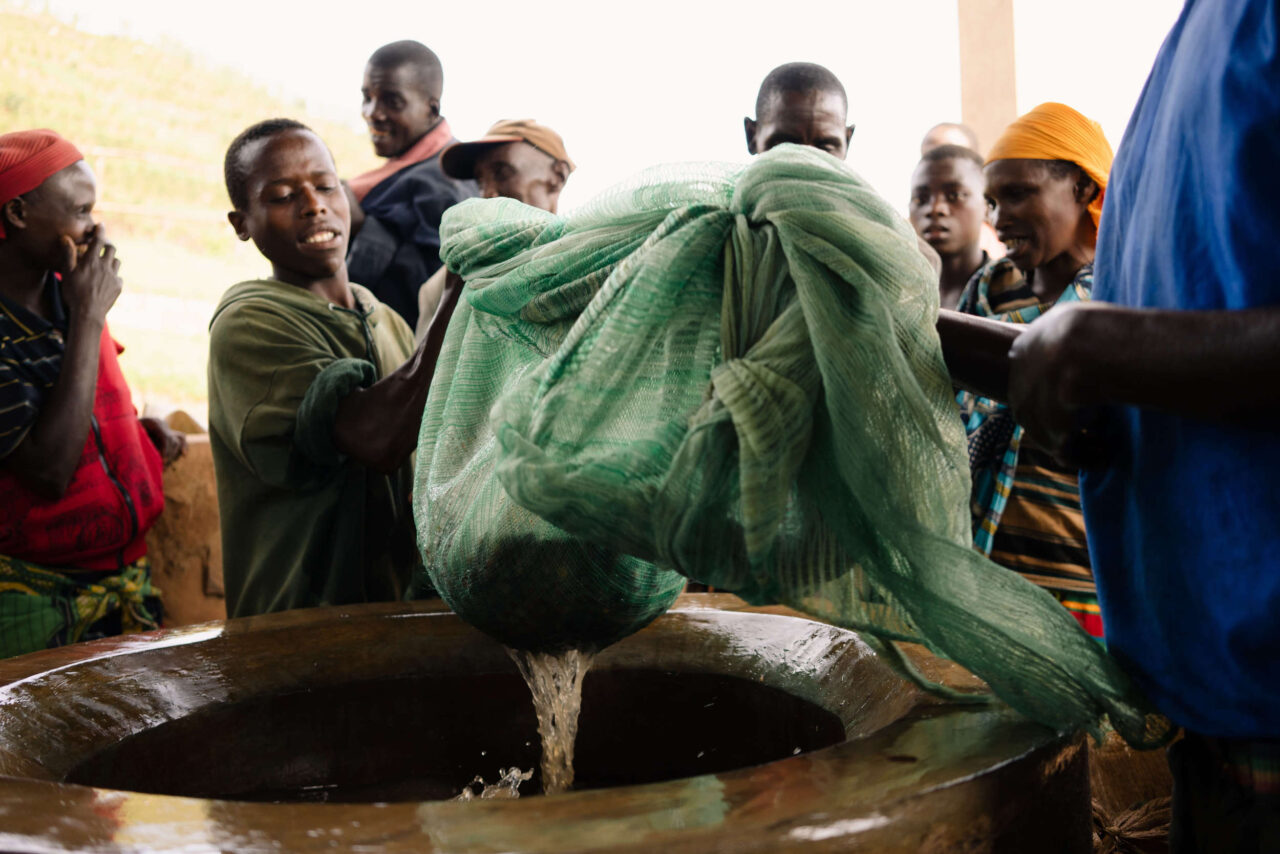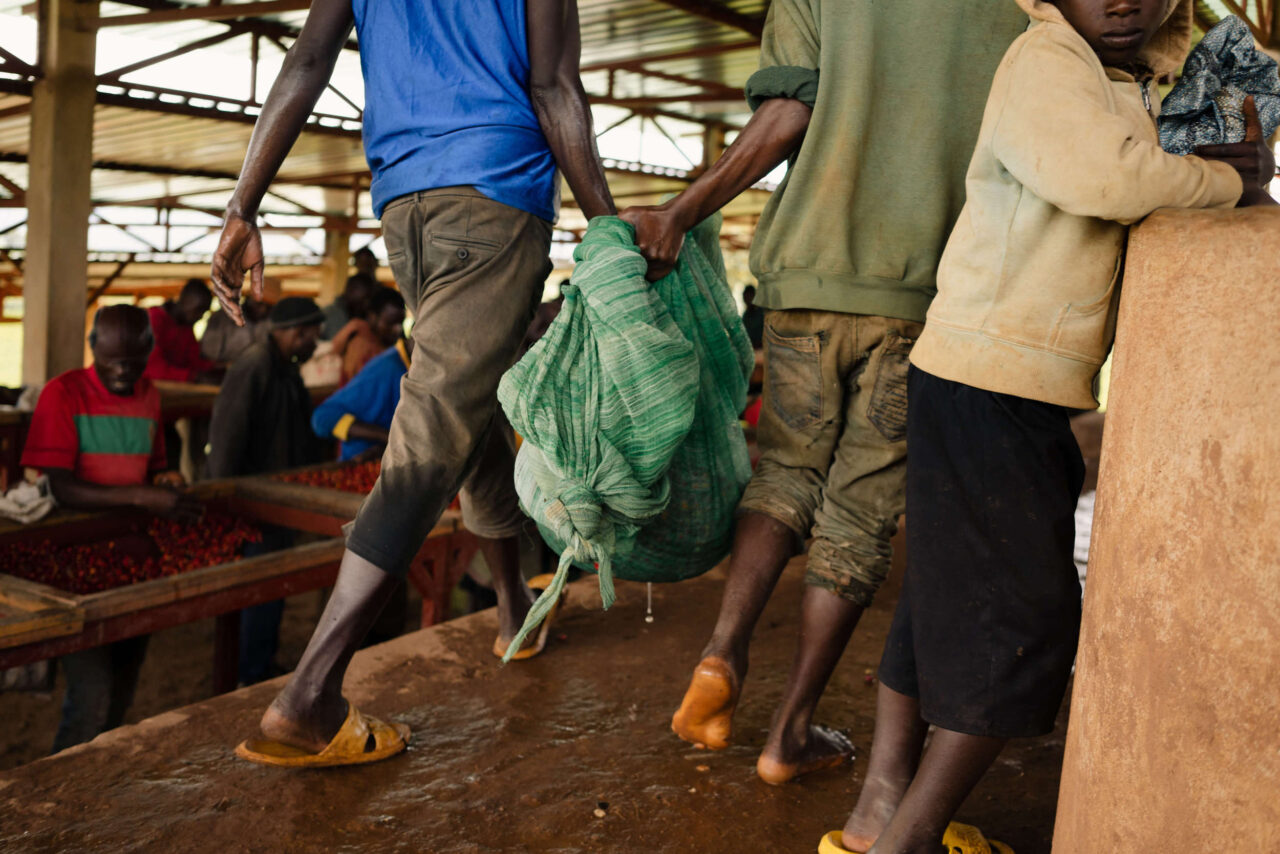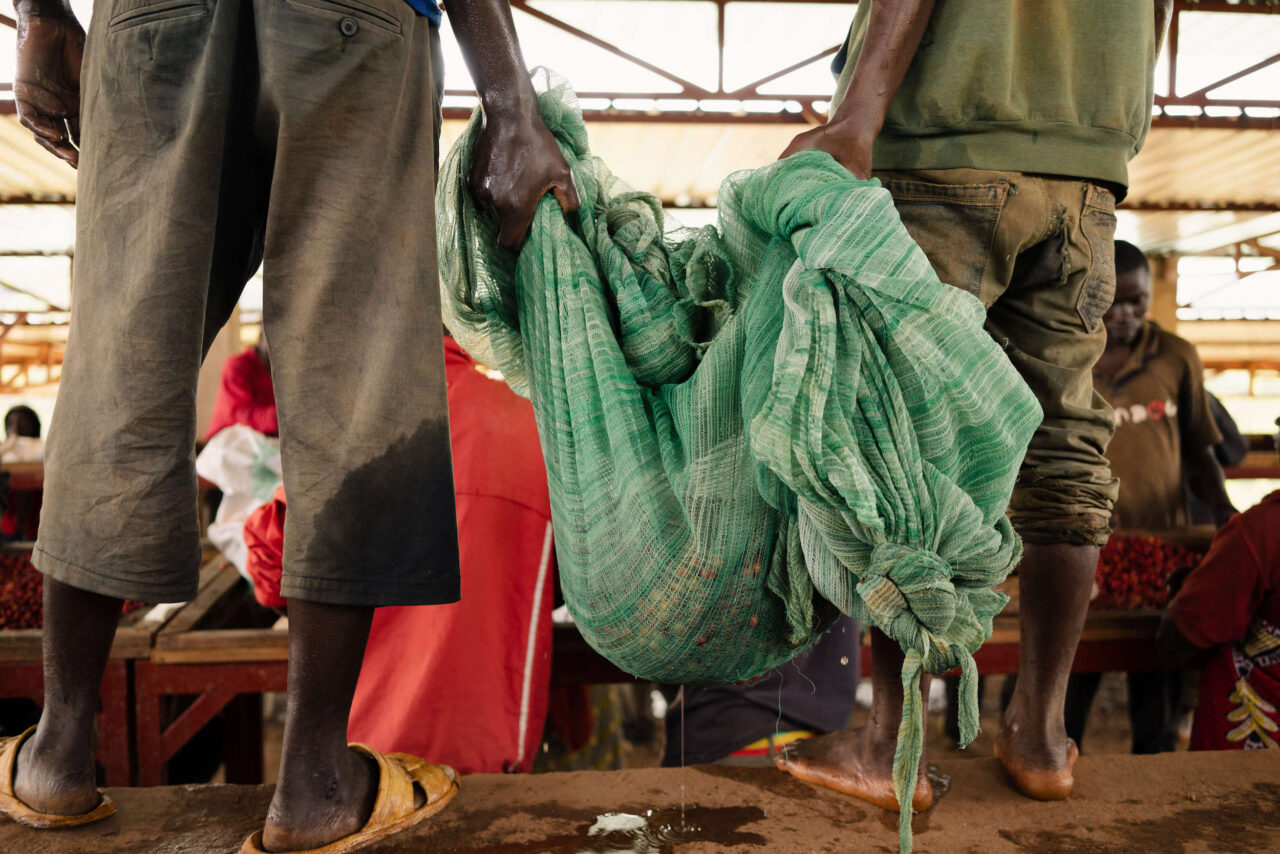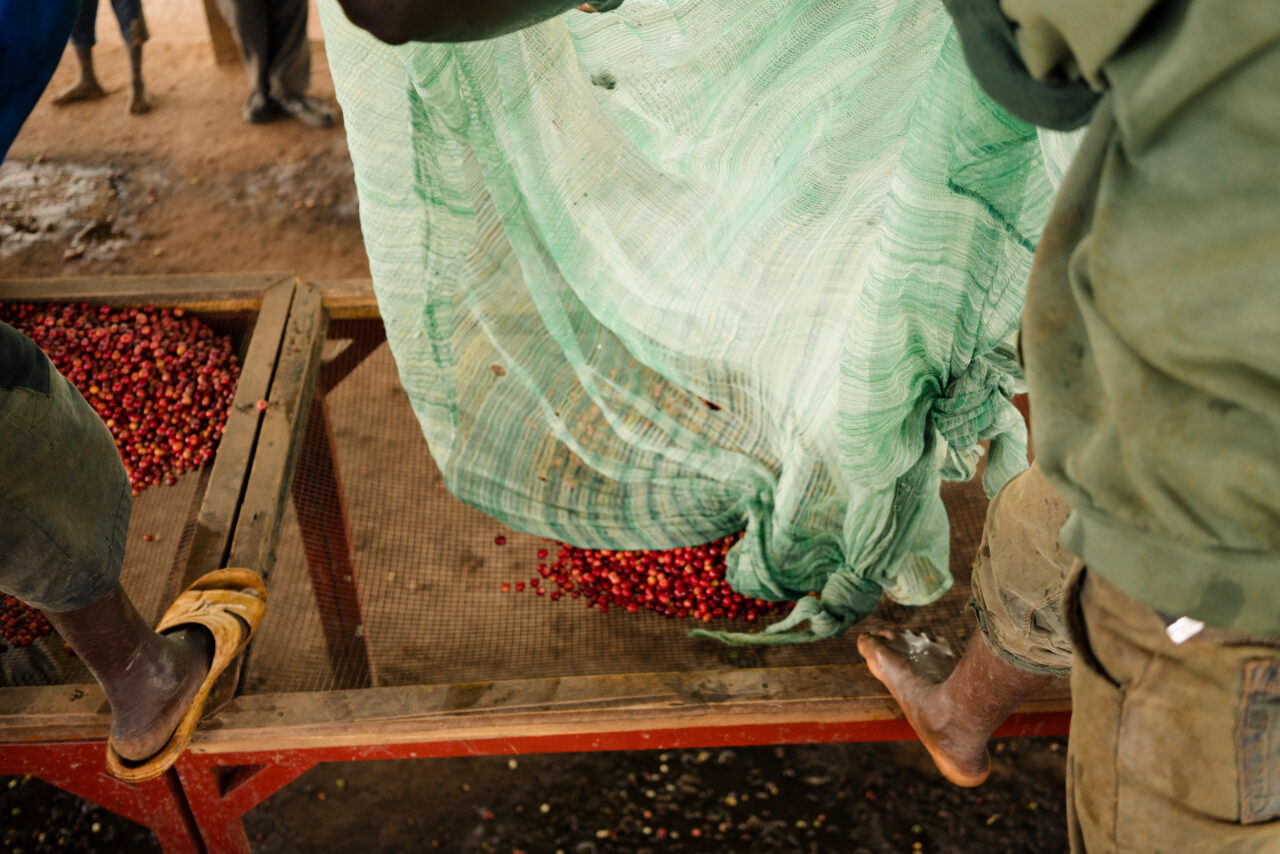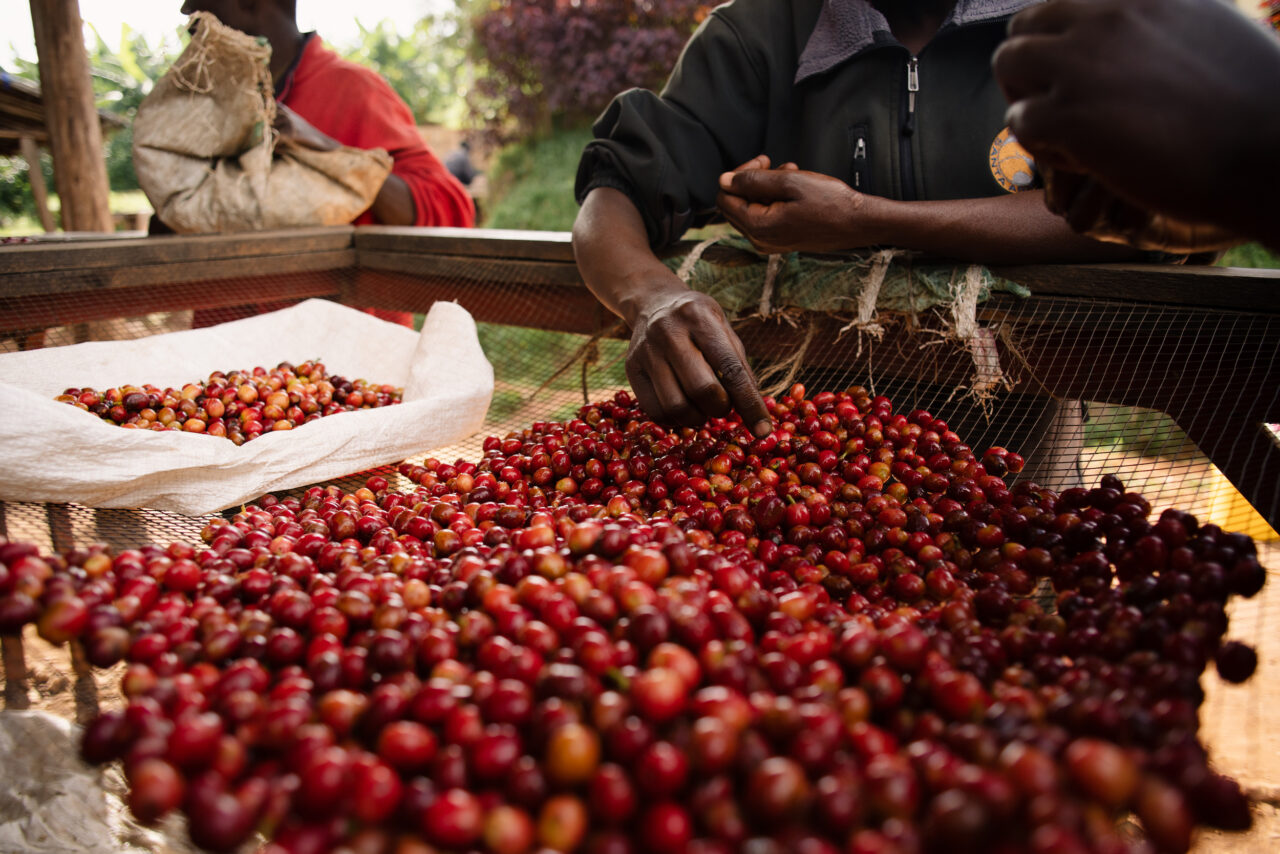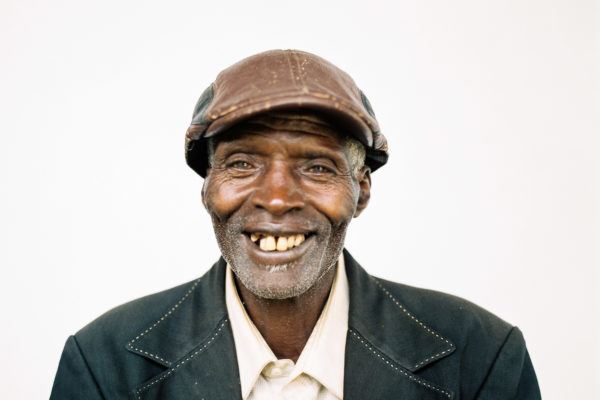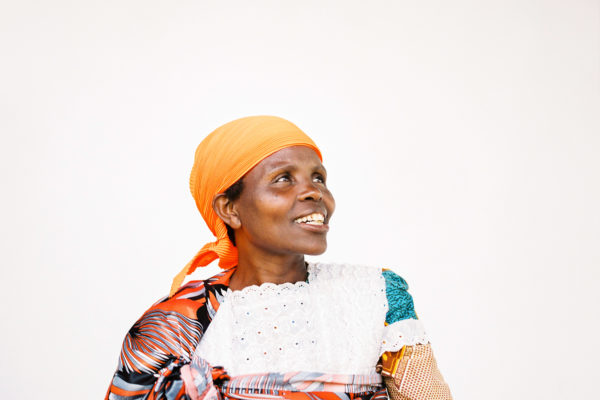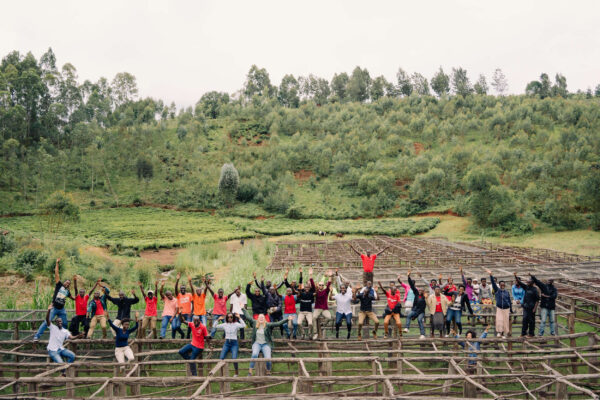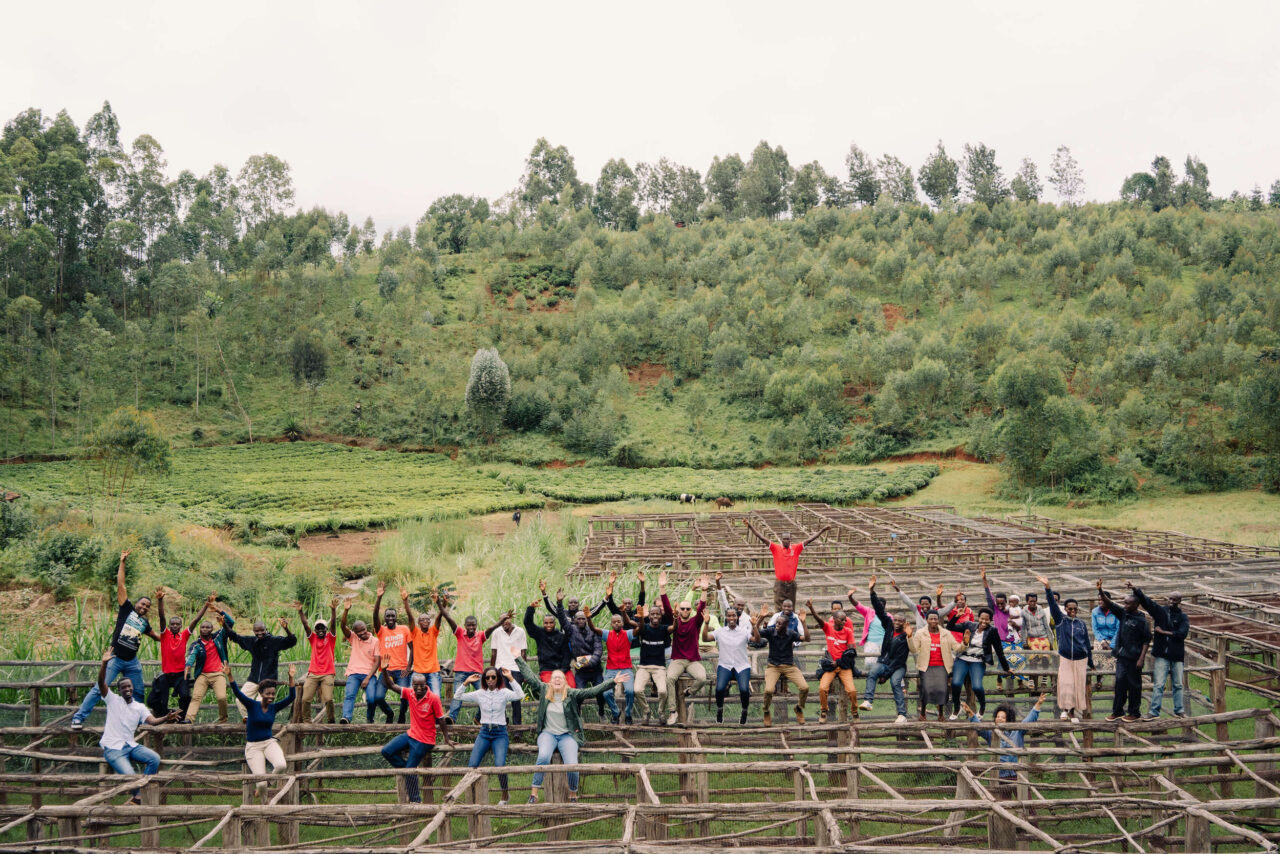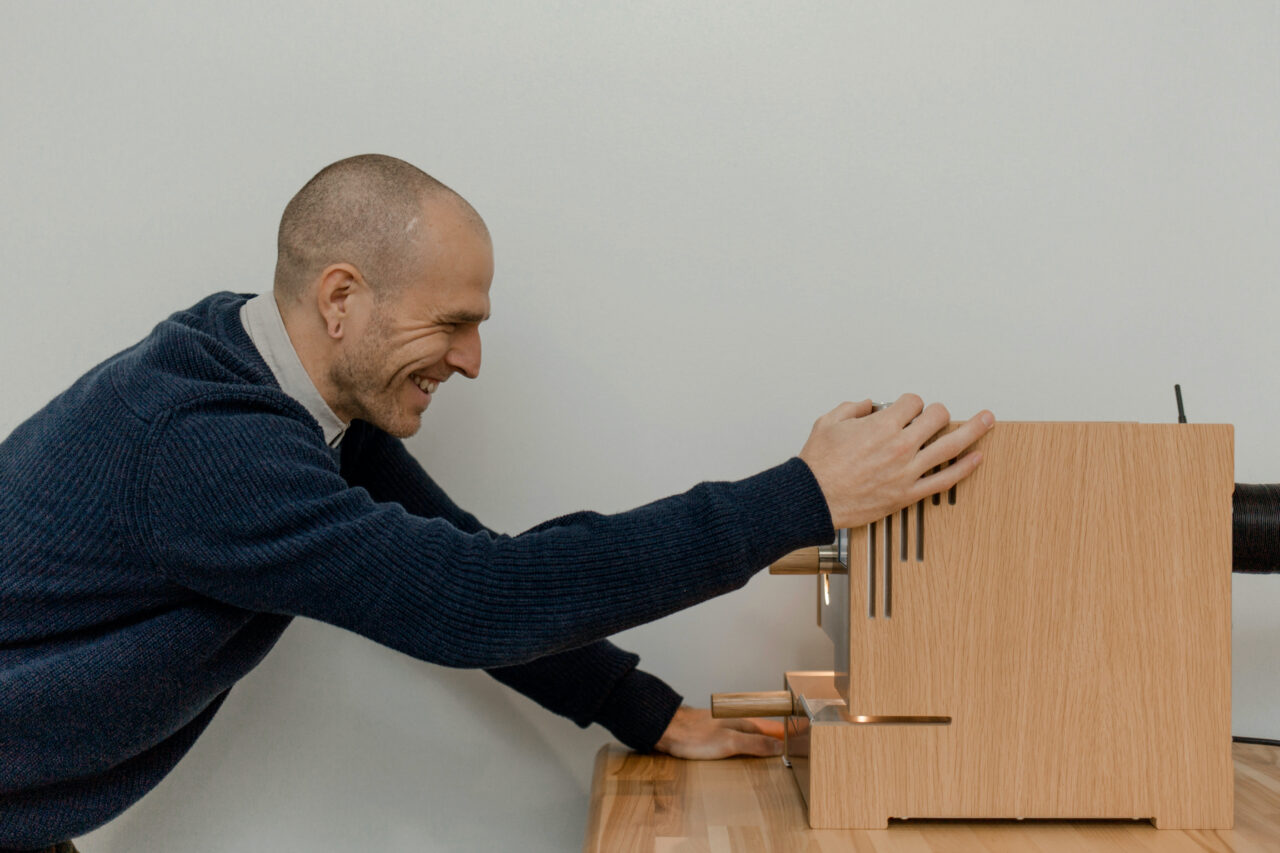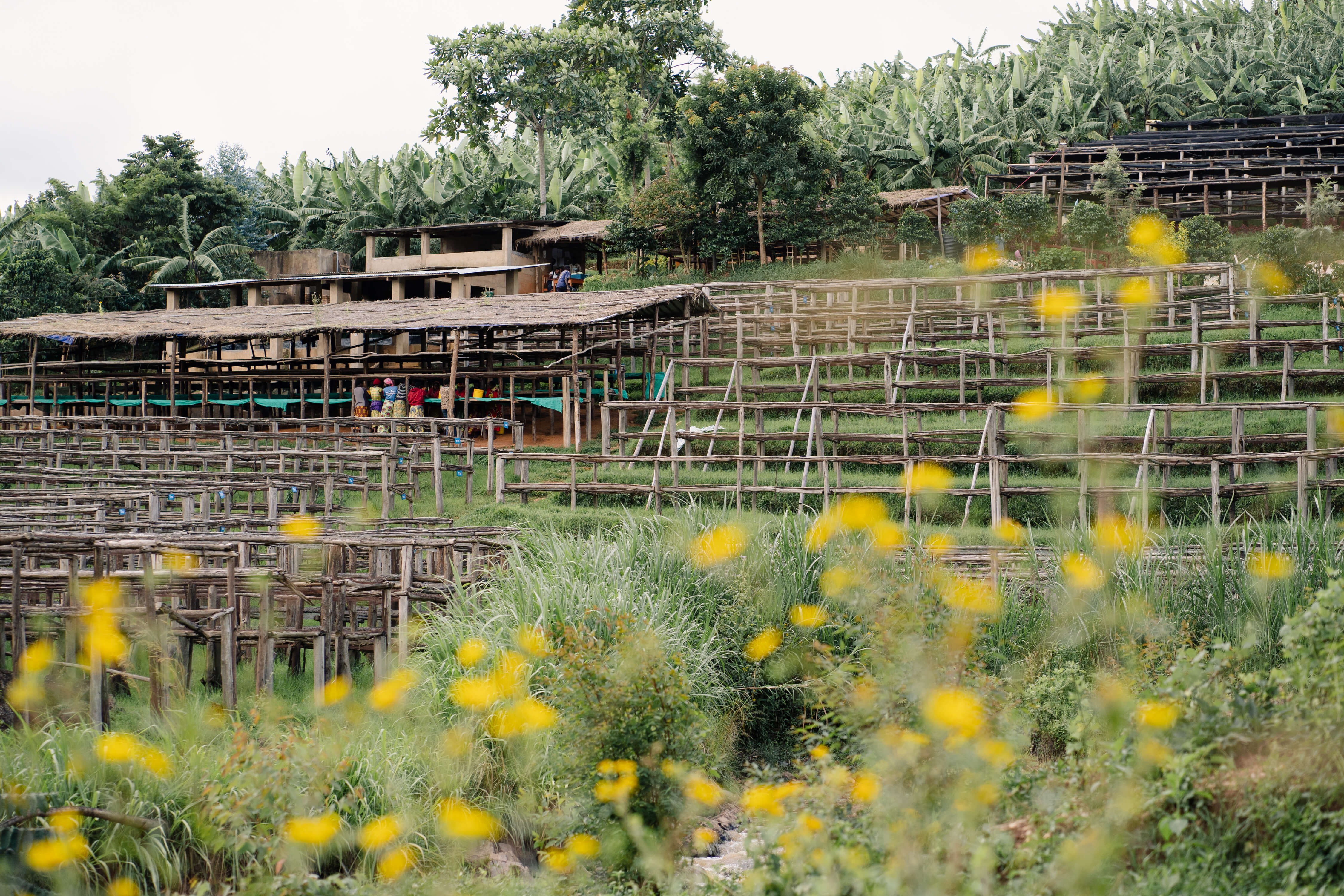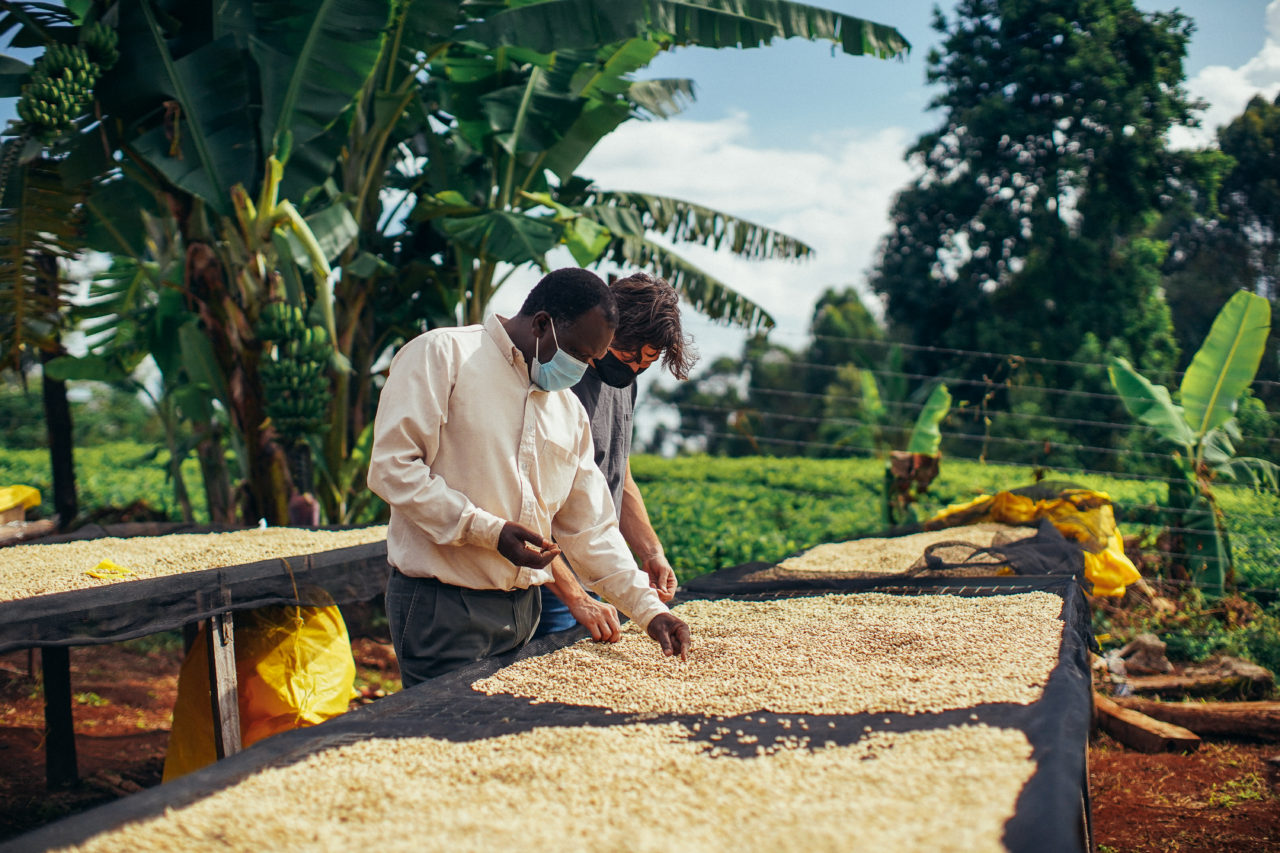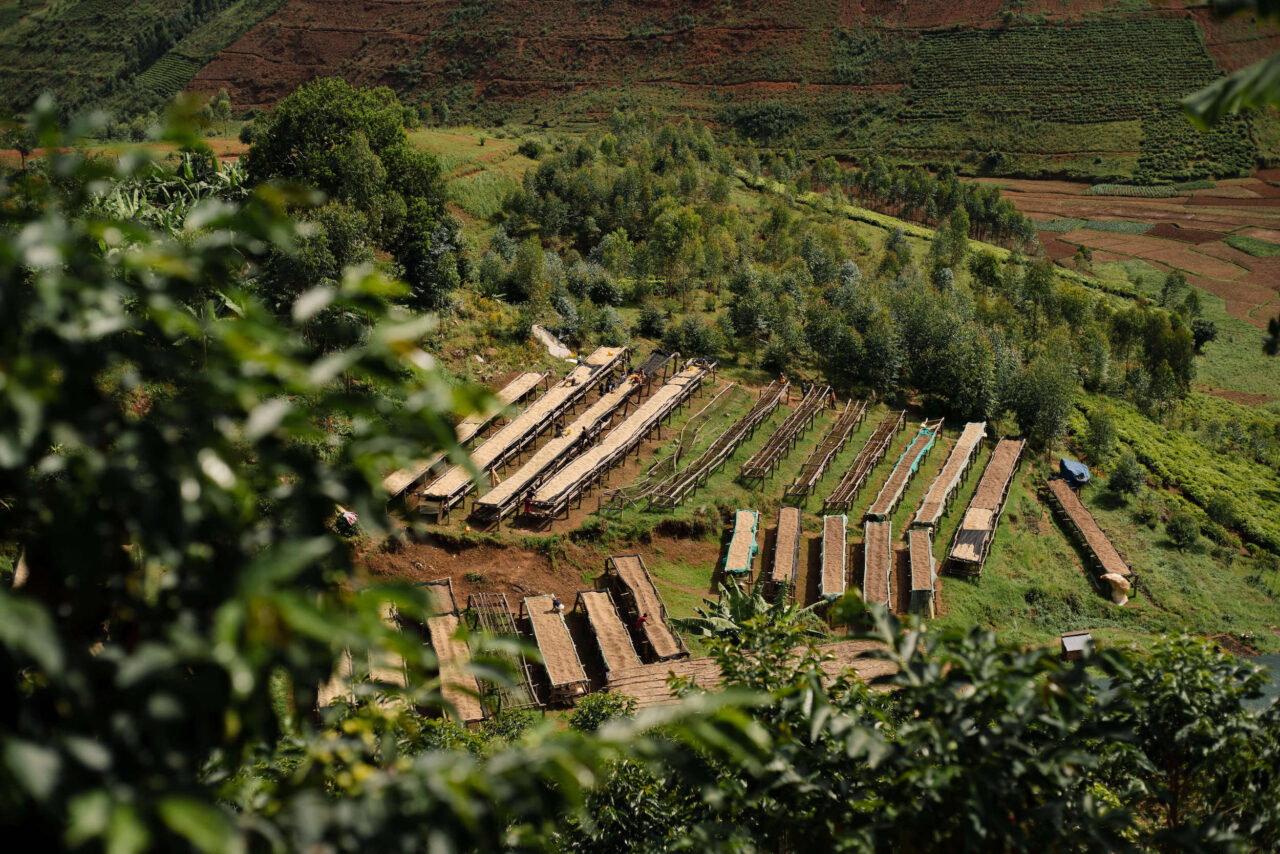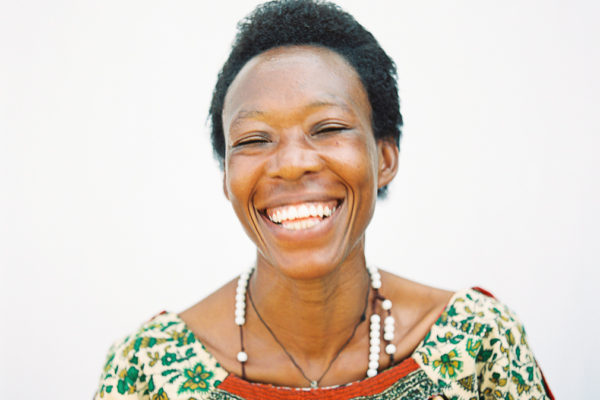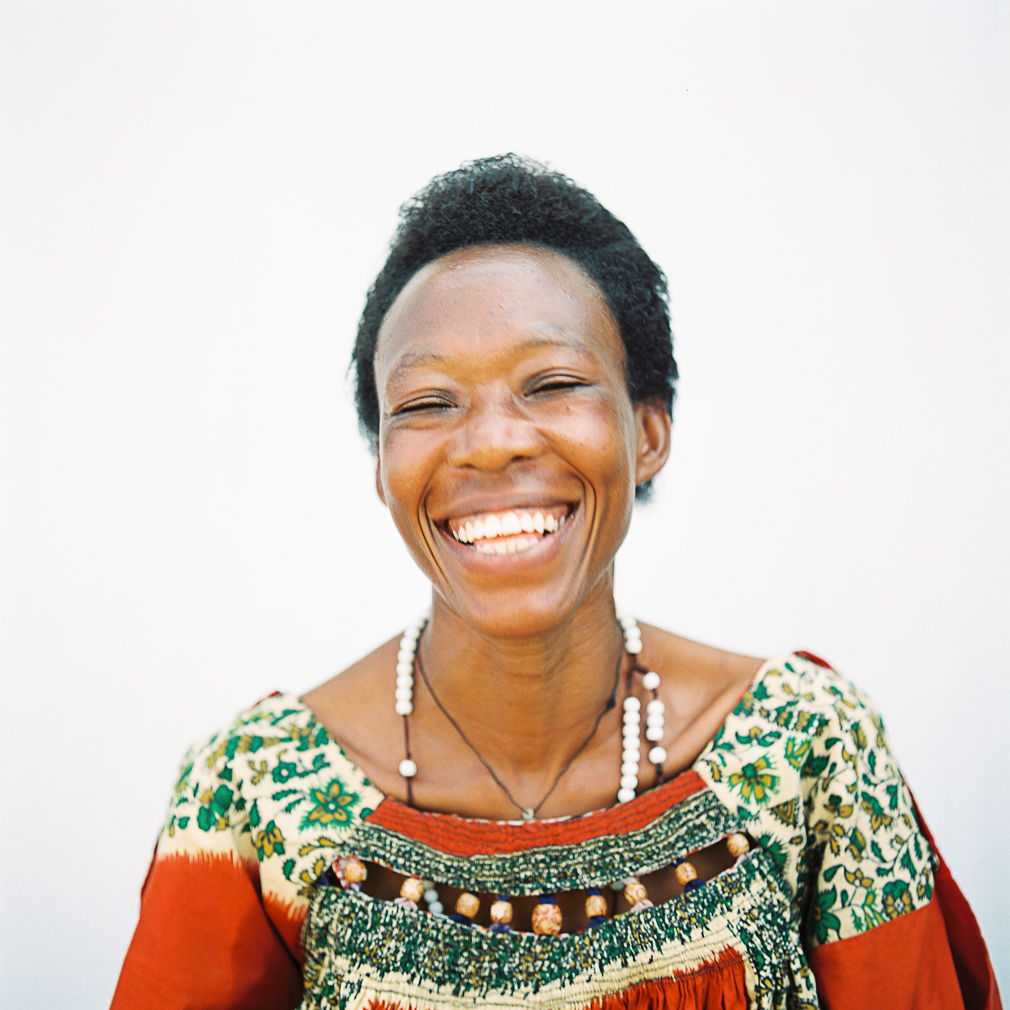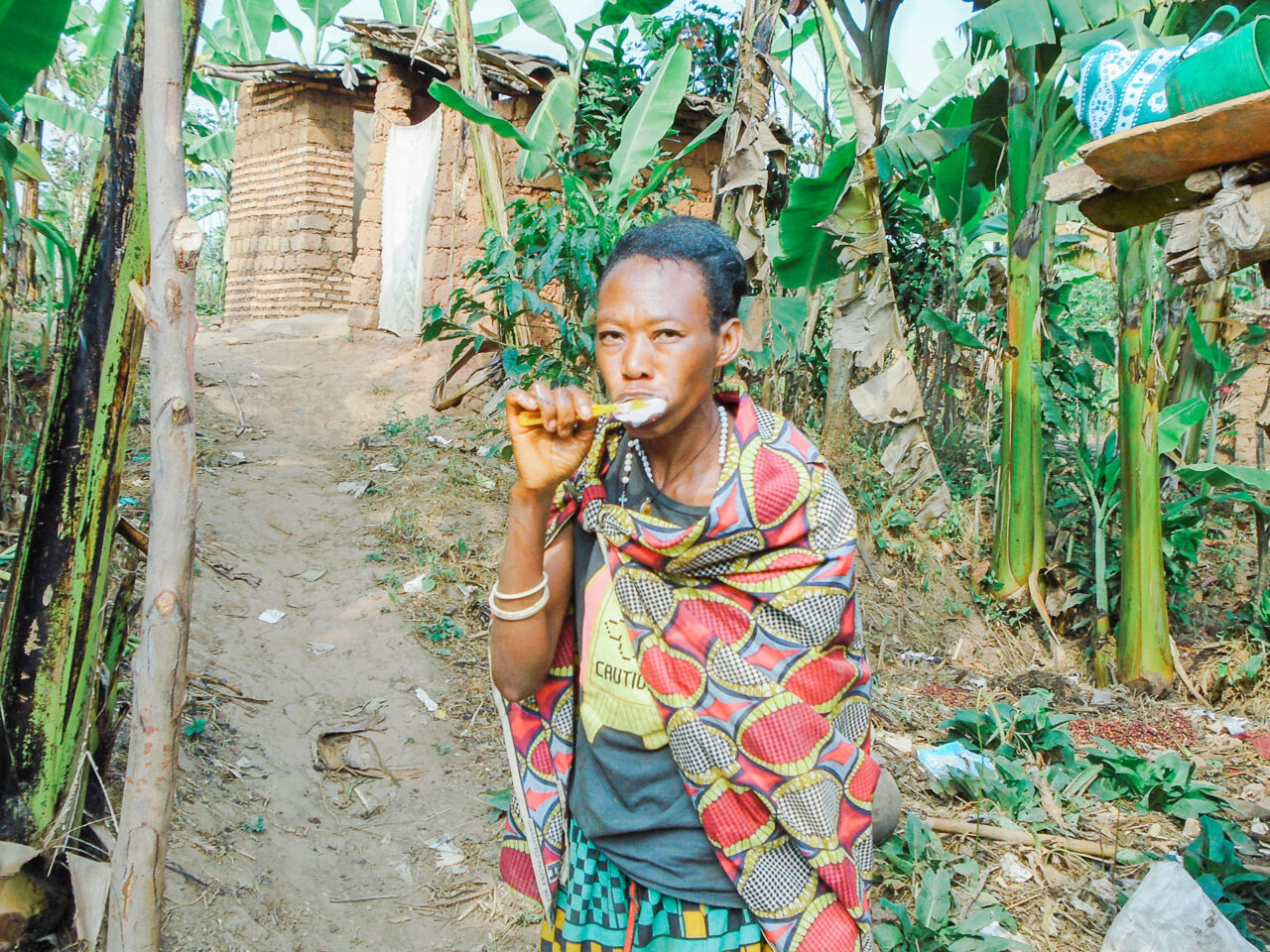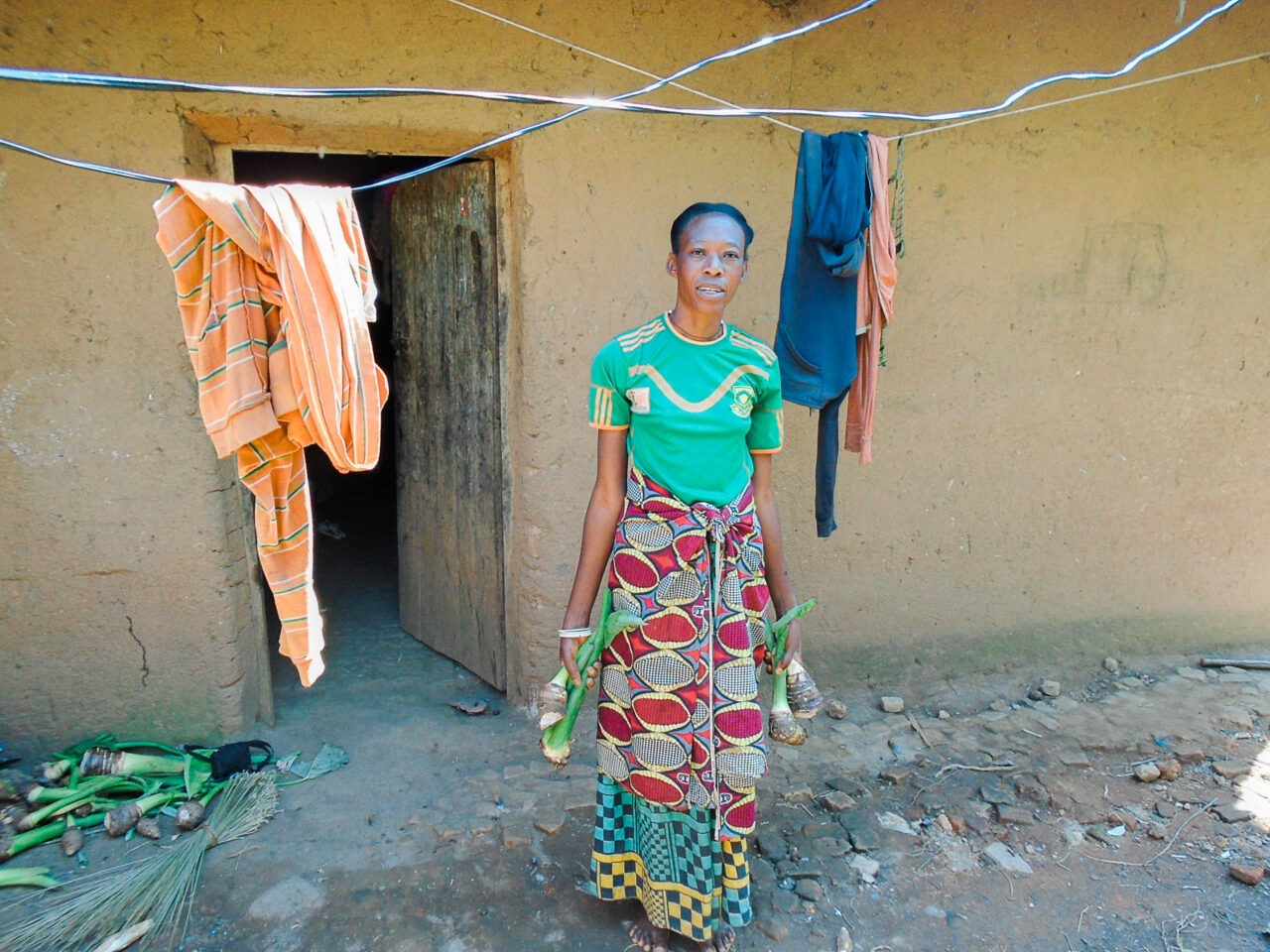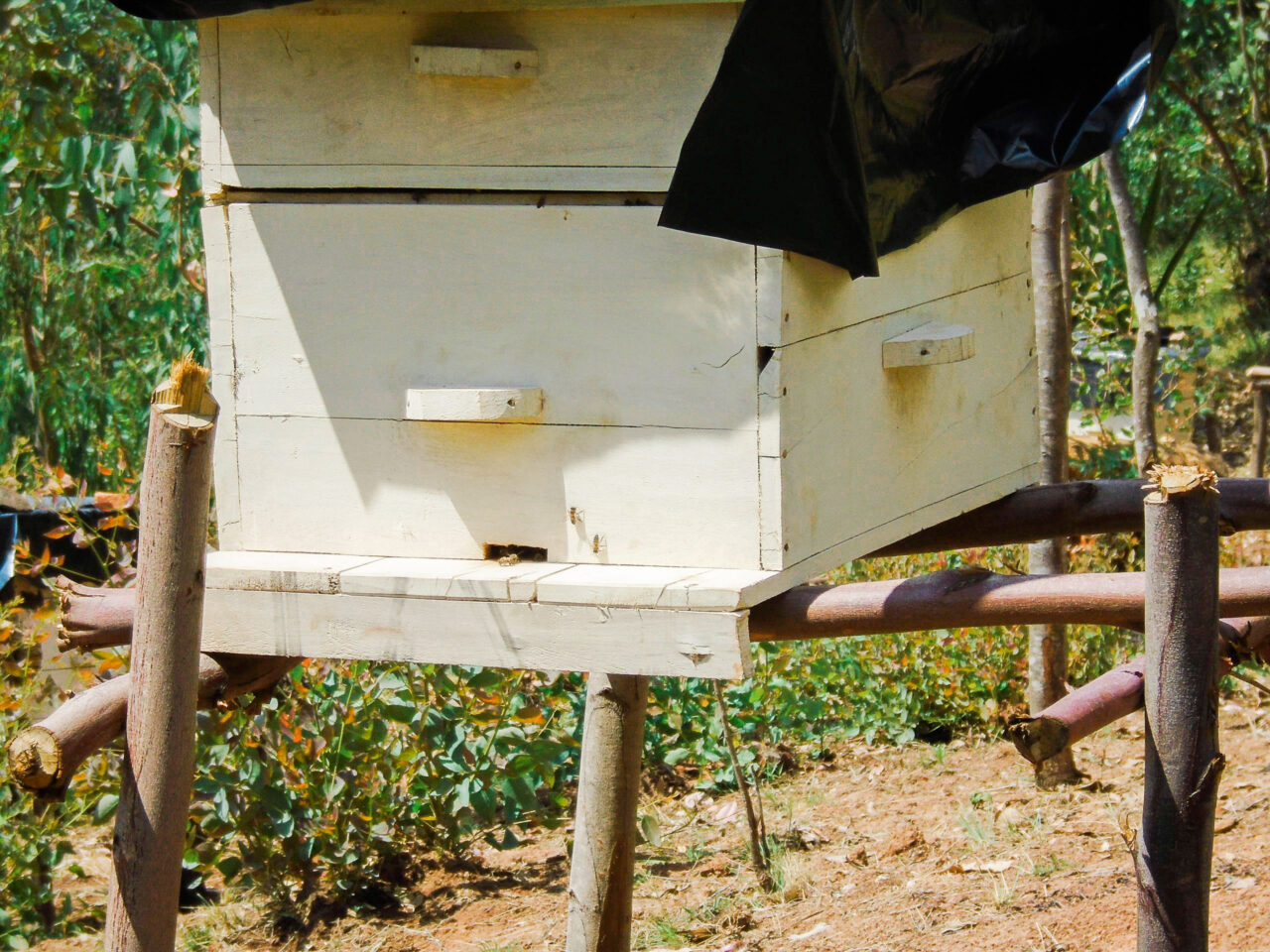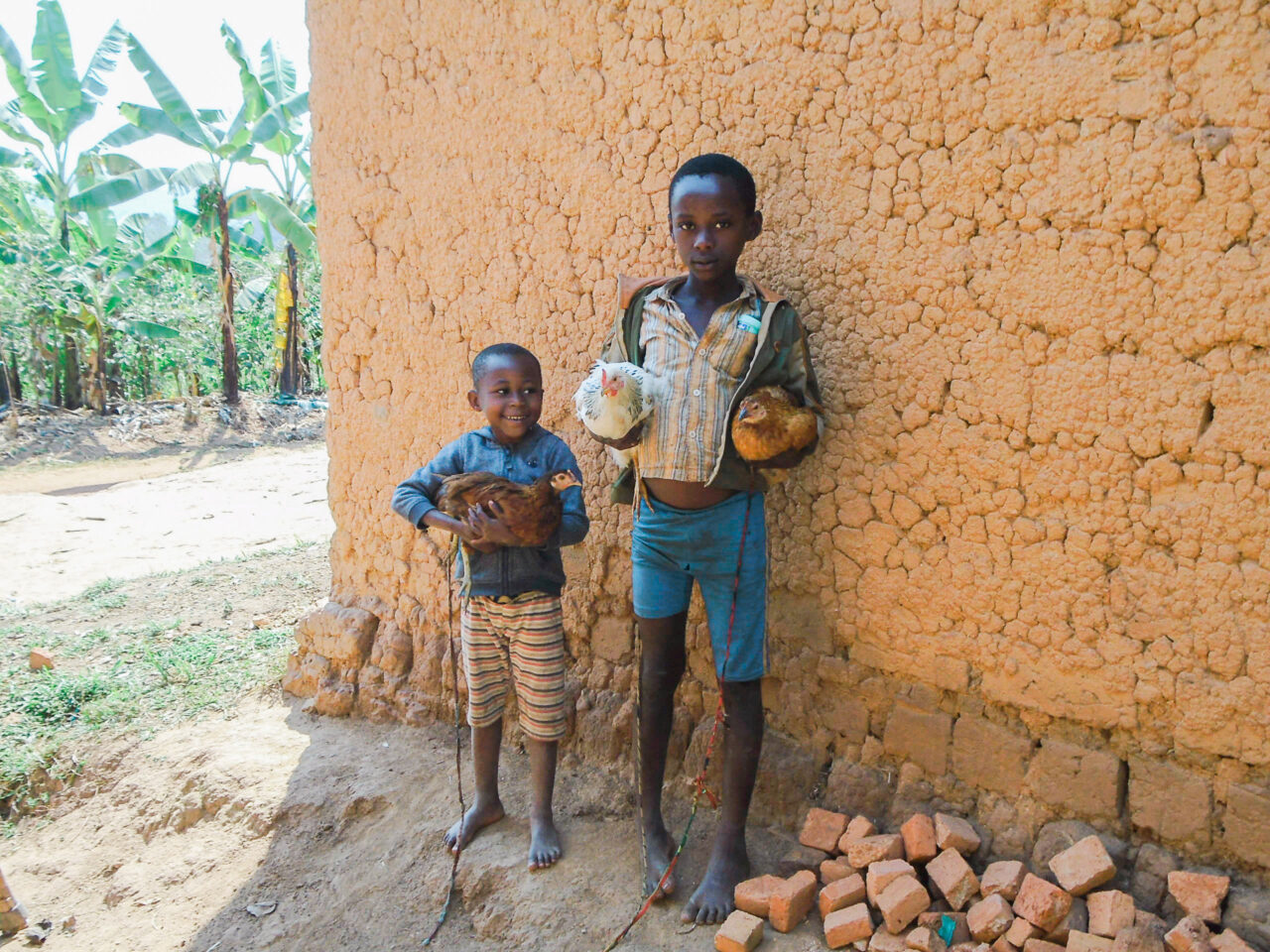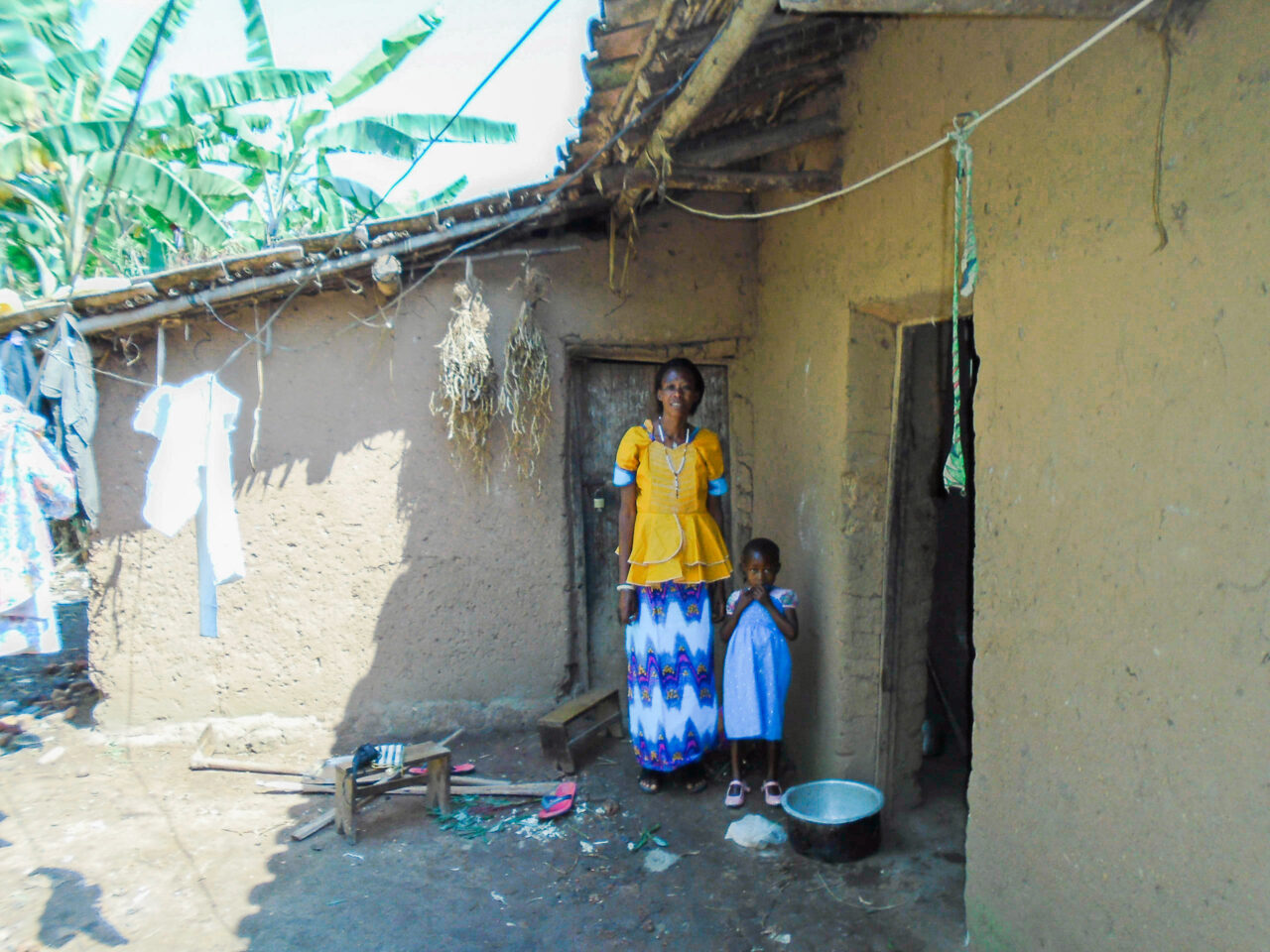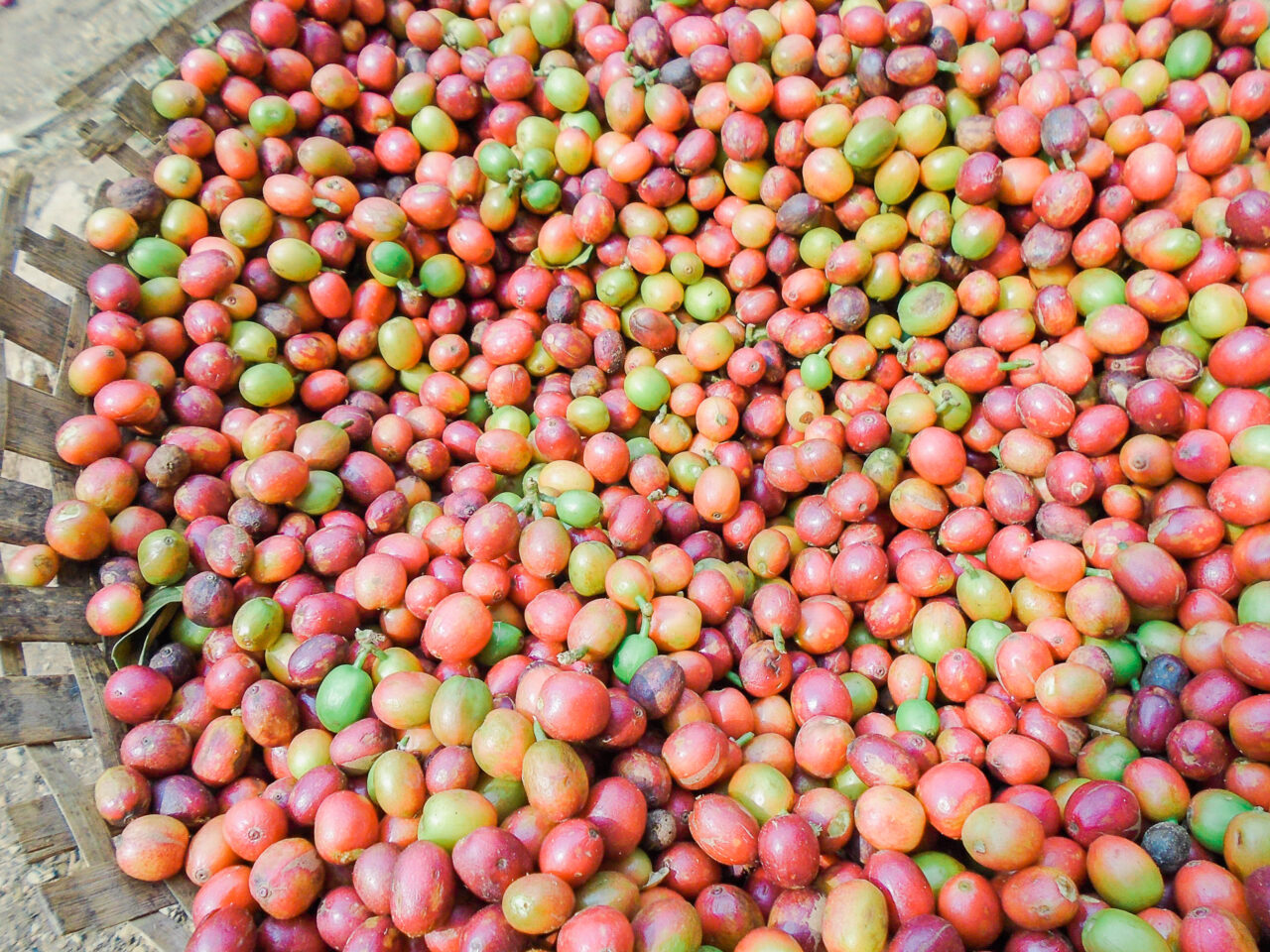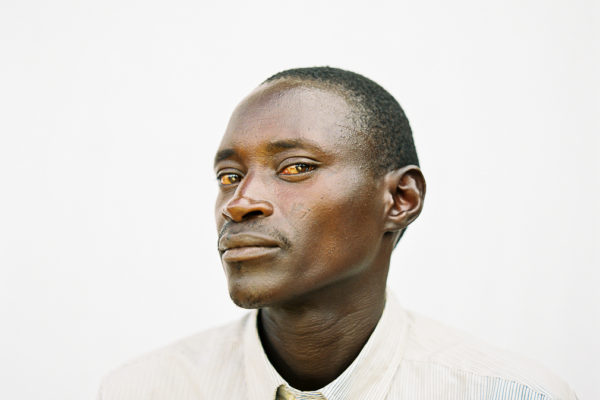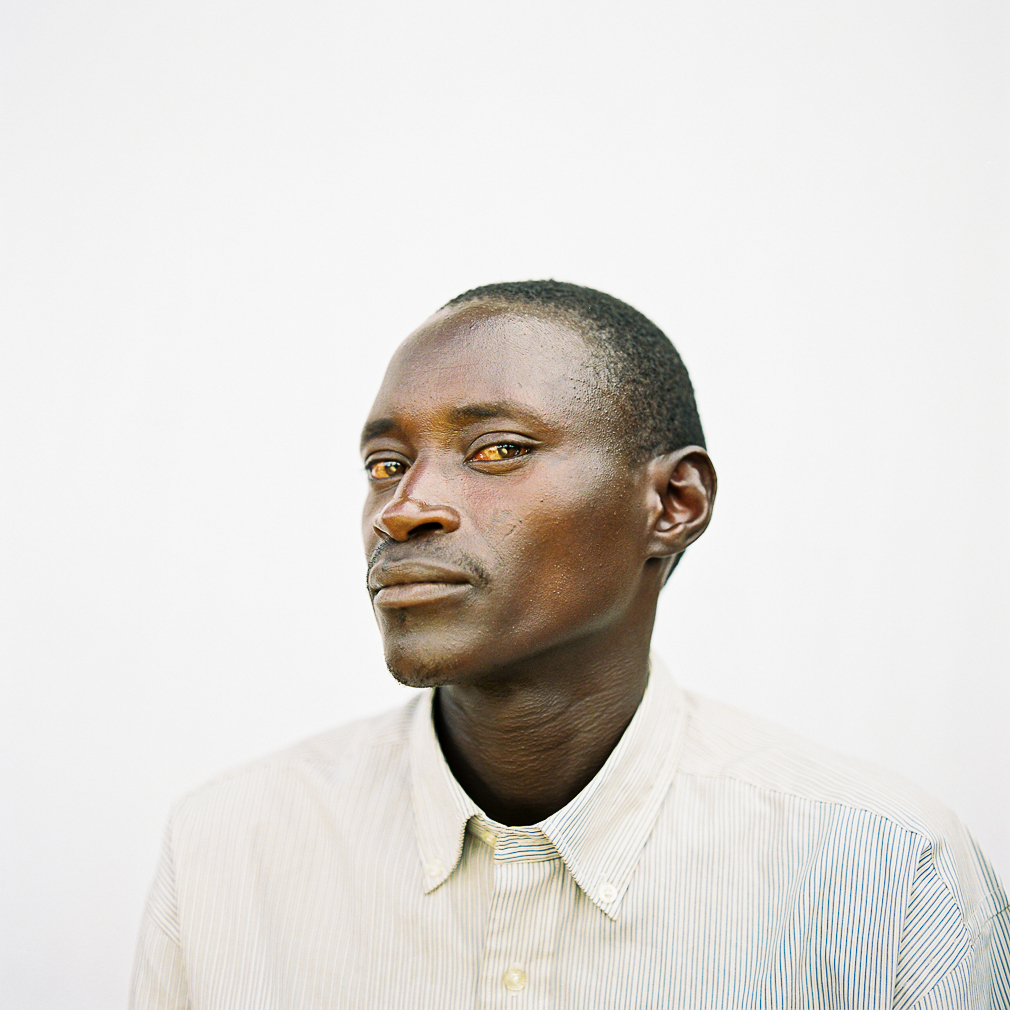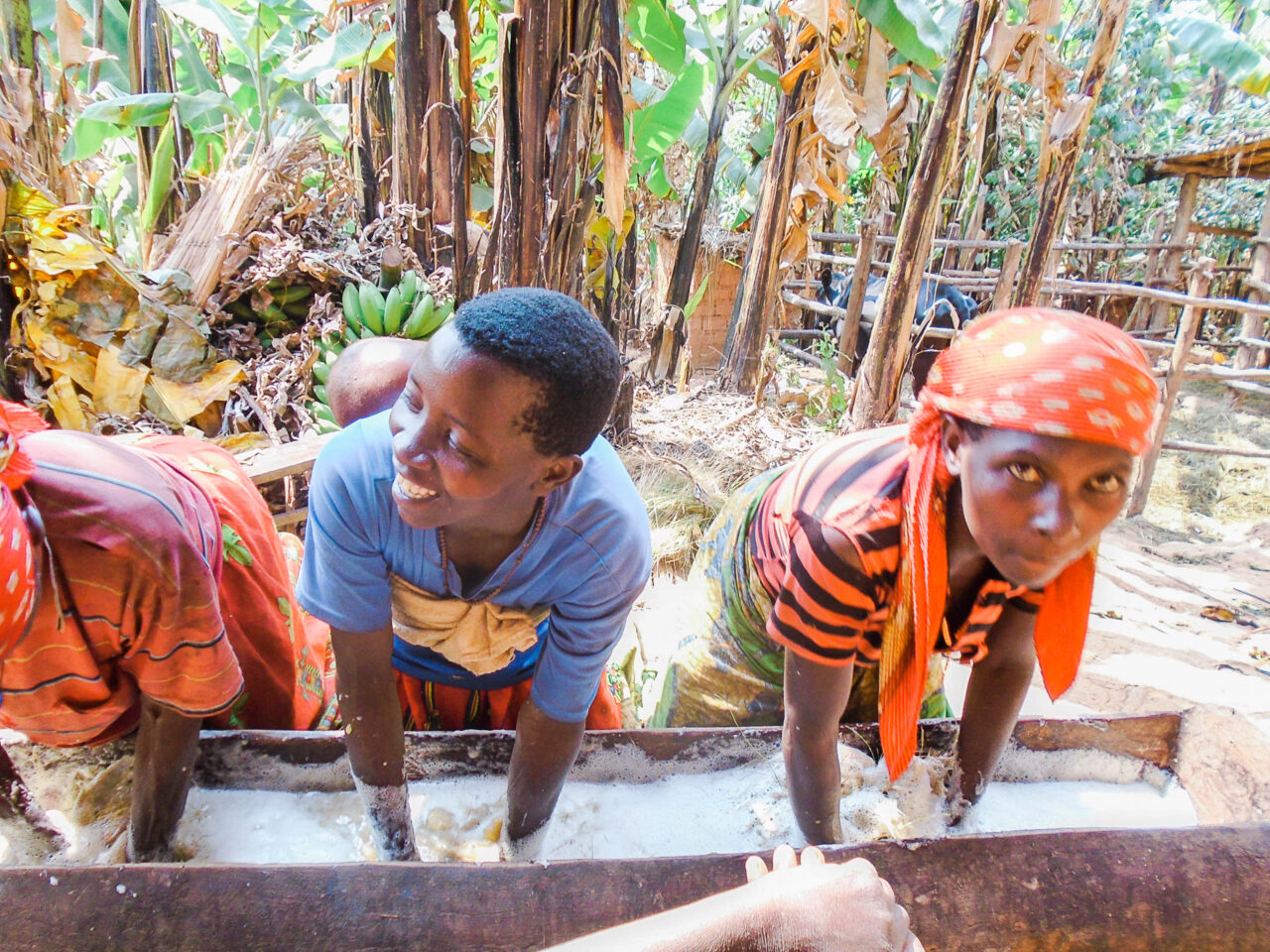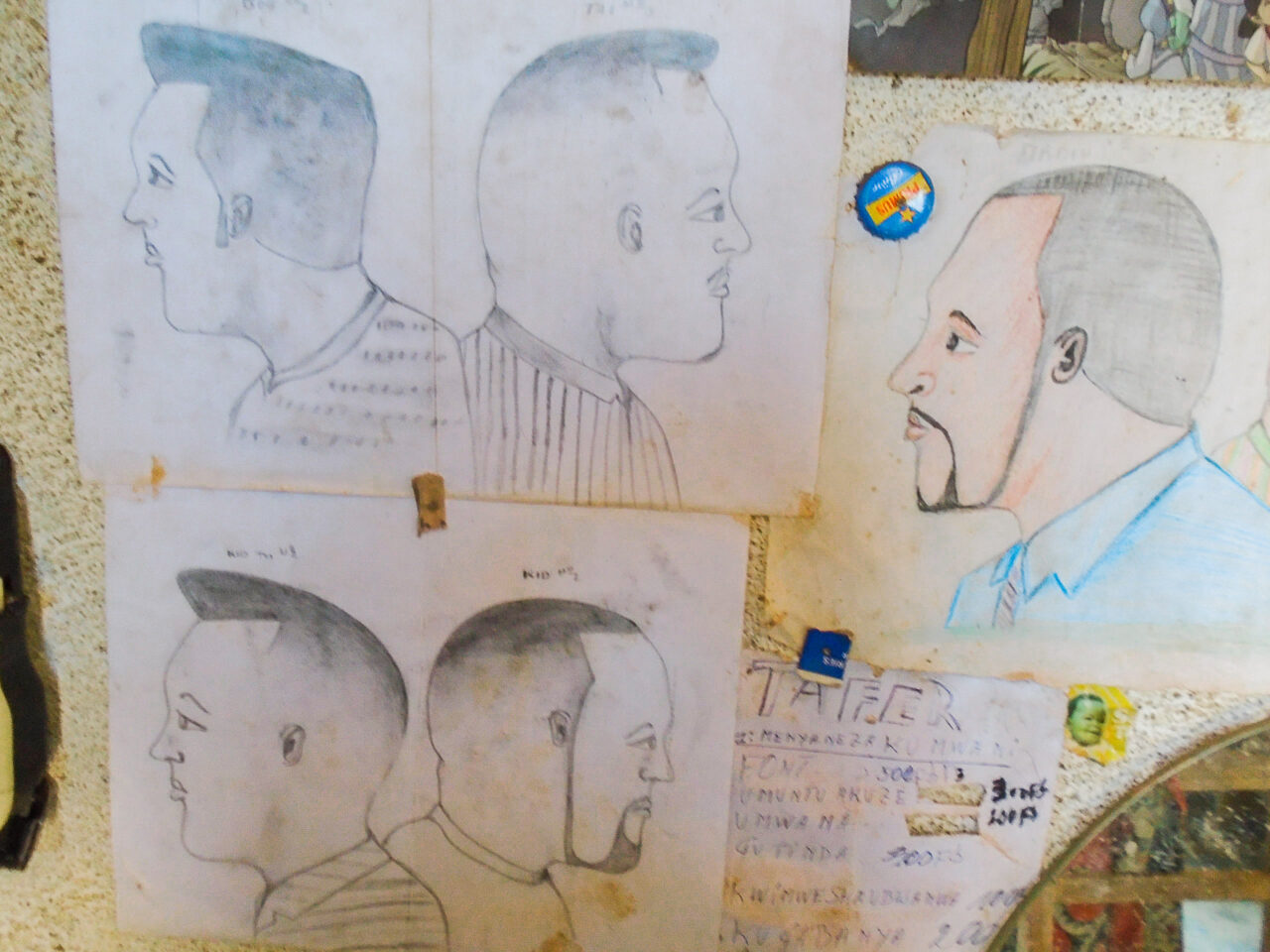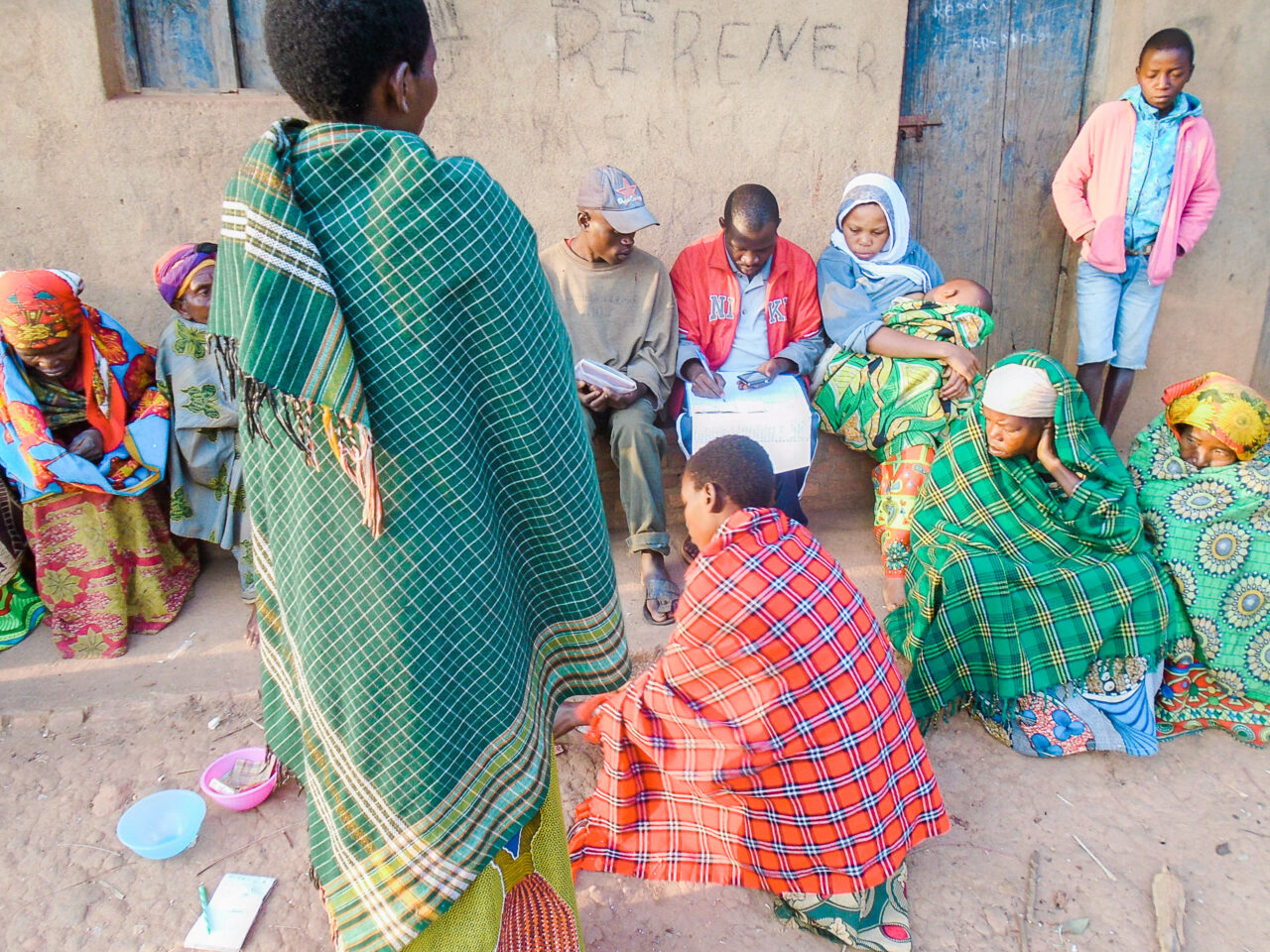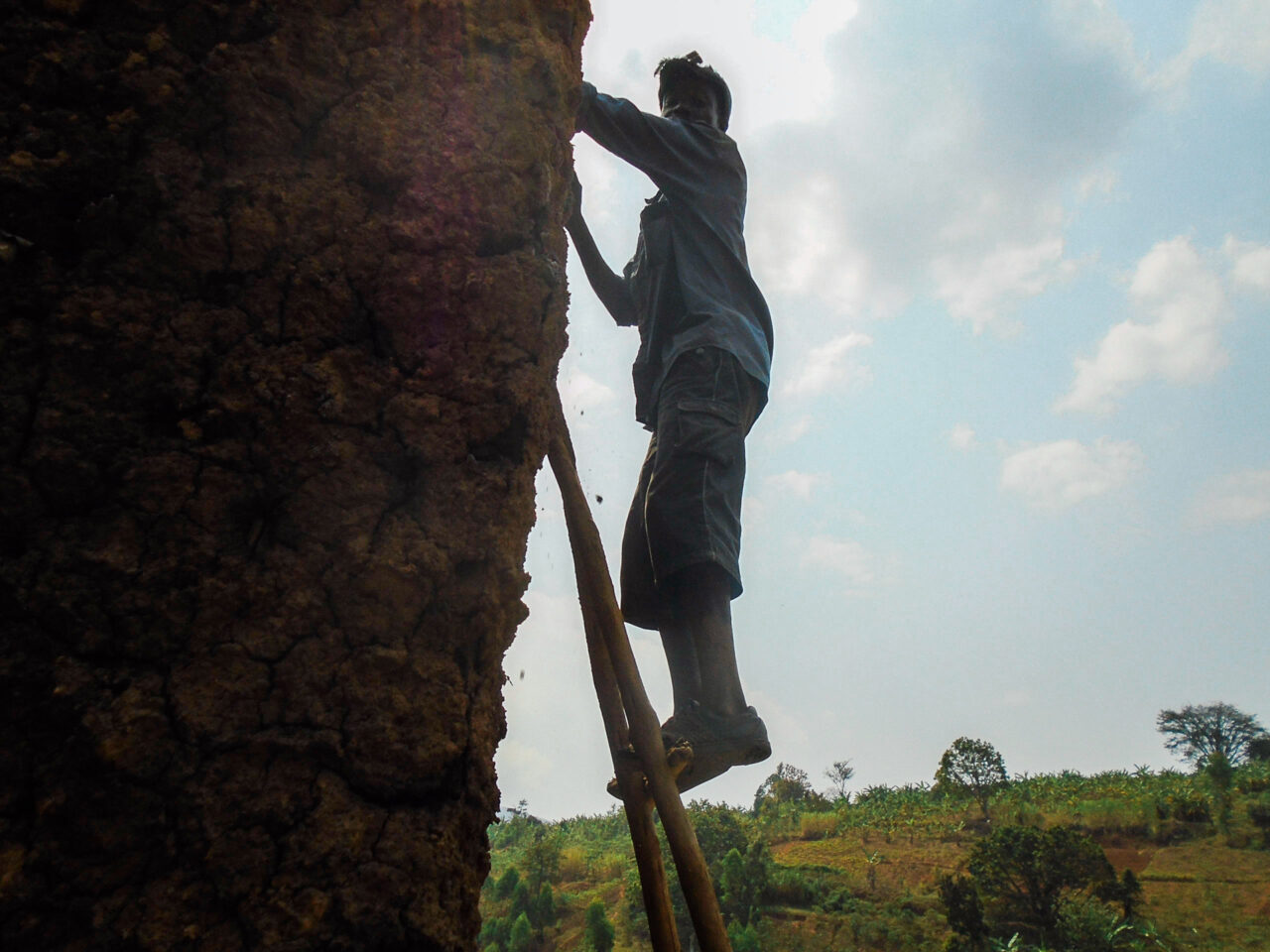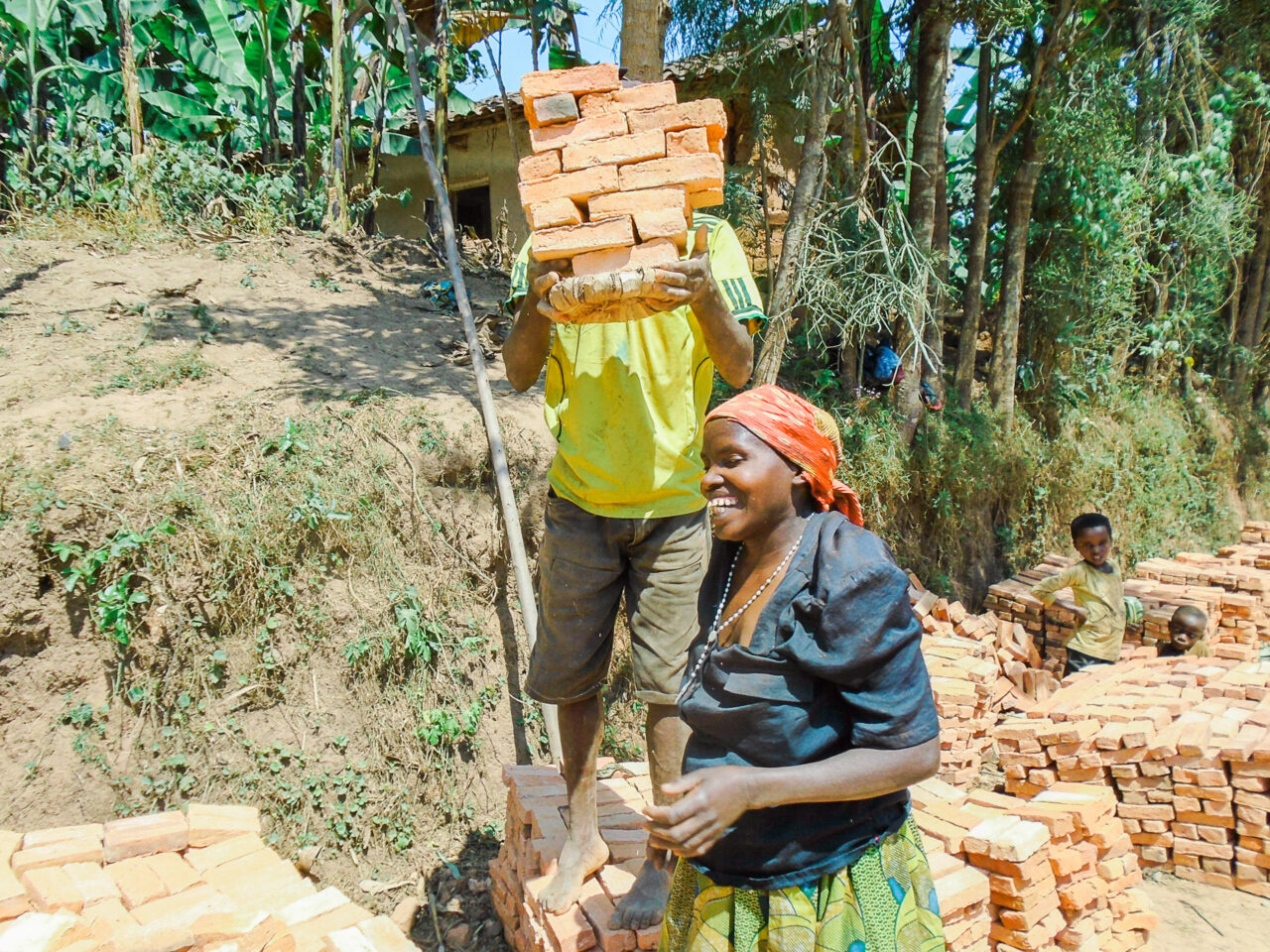
Joy joined Long Miles in 2018, and has been an invaluable member of the Story Team ever since. With a background in public health, she uses every opportunity to share what she’s learned with partner farmers while listening to, and finding ways to share their stories.
What is your earliest memory of coffee?
I grew up seeing coffee being ground in our house because it is my dad’s favorite drink, but I had no idea of where coffee came from. In primary school, I learned that in Burundi we have industrial or export crops that brings foreign currency into the country. At that time, it was cotton, tea, and coffee. Something that confused me was hearing that coffee brings foreign currency into the country, meanwhile my dad was buying it in Burundian francs. But, as I was still a child, I didn’t ask.
How and when did you get involved in the coffee industry?
When I heard about Ben and Kristy [Carlson], before meeting them, I had been told that they are in coffee business. In my mind, being in the “coffee business” was the shops where people used to meet for coffee, places like Café Gourmand in Bujumbura, and other places like that. As I mentioned, I didn’t know anything about coffee apart from seeing my dad drink it. I never thought about working in coffee.
In 2016, during coffee harvest, the Carlsons took me with to visit Bukeye Washing Station. There were two things that surprised me that first time visiting a washing station. One, was seeing so many people working there. Second, was seeing cherries. When they told me that it was coffee, the first question that came to mind was, “Are there two kinds of coffee?” This was the comparison I was making between coffee in the cup (the one I used to see my dad drink, and in the coffee shops), and coffee cherries at the selection tables.
There were a couple of reasons that pushed me to work in coffee. Coffee connects different people from different cultures, different countries, and different continents. Coffee is people. This is the reason that I was interested to learn more about coffee, and is something that I am now proud to be a part of. Of course, there are still many, many things to learn in coffee, but at least today I can help somebody to understand coffee out of the cup.
The second reason that pushed me to work in coffee is to help others with my degree in Public Health. I thought maybe there are people who need my help, especially in upcountry Burundi where many people don’t have access to information like they do in the city.

What is your role in the coffee supply chain?
I started working in coffee in 2018. My role is to listen to, collect, and share farmers’ stories. Working in coffee means a lot to me. I am working in the Story Team, and we are in communications. Together, we are helping the world understand the story of coffee: its origin, who grows it, what growing coffee looks like, what a coffee farm is like, what happens to coffee at the washing station, what the next step is after processing it at the washing station…
I don’t use my background in public health every day, but there are always opportunities to do it. I have many examples, but I’ll just share one:
I visited a coffee farmer on Gaharo Hill, and during the interview they explained the challenges farmers face, one of them being malaria. Both her husband and baby were sick with malaria at the time. While she was talking, I saw that in front of her house, there was a small farm of vegetables covered with a mosquito net. During our conversation, I asked why the mosquito net was covering the vegetables. She said that it prevented the chickens from eating the leaves. I asked her if she knows the cause of malaria, to which she replied, “It’s mangoes”. I asked her, why mangoes? “Because many people get malaria when it’s mango season”.
I took the time to explain the actual causes of malaria, that mosquitoes are prevalent during mango season because of the rains during that time of year, and how to prevent malaria. It was a really valuable discussion!
Apart from growing coffee, farmers are growing other crops that are good for their health, but don’t always eat them. Through the interviewing process, I’ve been able to help them to understand the relationship between food and health.

Are there any challenges that you think exclude women from working in coffee?
There are no challenges that exclude women from working in coffee. The problem is the lack of information, or having access to false information. For example, women farmers have repeatedly heard something that’s not true, which is that “coffee is for men”. Other women farmers know that coffee can be prepared as a drink, but don’t know that there are many other things to do in coffee. Sometimes, women in Burundi don’t have enough time to research as men do.
When you consider the coffee industry, do you think that women are empowered to be in leadership and decision-making roles?
In the coffee industry the number of women must be less than men, but those women who are there are empowered to be in leadership and decision-making roles.

Is there anything that you would like to learn or do to further your understanding of how coffee is produced or processed?
I would like to improve my photography skills, and how to share information on social media.
